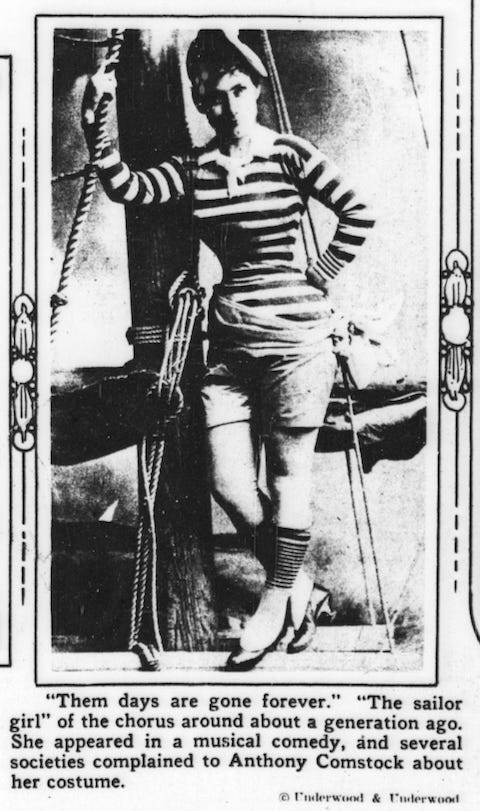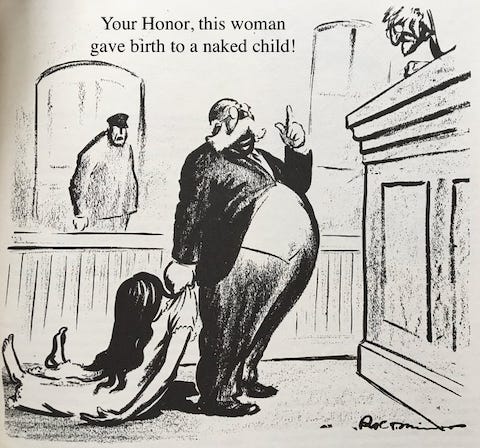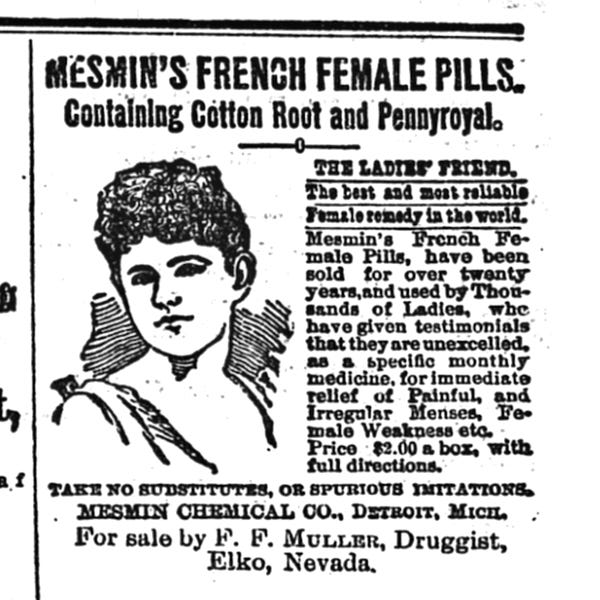
Satire of Anthony Comstock as a monk thwarting displays of excessive flesh, whether that of women, horses, or dogs. Yet “the village nuisance” ends up in his own hell.
Until last week, Anthony Comstock had been largely been forgotten. But then he was resurrected by Texas federal judge grasping for a justification to limit women's reproductive rights. Here’s a brief Comstock primer.
In his day, Comstock played a significant role in shaping American society during the late 19th century.
As the founder of the New York Society for the Suppression of Vice (NYSSV), he opposed abortion, contraception and what he deemed “obscene literature.”

Comstock was a self-proclaimed crusader against "obscenity" and "vice" and he used his influence to advocate for strict moral standards in society.
In 1873, he successfully lobbied for the passage of the Comstock Act, a federal law that aimed to regulate and suppress materials deemed “obscene” - including books, magazines, and contraceptives.

As a fervent Puritan, Comstock's beliefs and actions were often seen as out of step with the changing social norms and values of his time.
Most Americans saw him as a moralistic zealot who overstepped his bounds.

Comstock's narrow definition of obscenity and vice led to the fanatical suppression of essential health information.
Under the Comstock Act, educational materials about contraception and reproductive health were deemed obscene, limiting access to vital information for women and families.


Comstock's zealous crusade against perceived immorality also targeted notable authors and activists of his time, such as Margaret Sanger, Mark Twain and D.H. Lawrence, who fell afoul of his rigid moral code.
Comstock’s attacks on public figures were often criticized as censorship and a violation of freedom of speech and expression.

With time, Comstock's influence waned, and the Comstock Act (and similar state laws) were gradually weakened. Eventually, many such laws (or portions of them) were declared unconstitutional.
The restrictions on birth control in the Comstock Act were effectively rendered null and void by Supreme Court decisions Griswold v. Connecticut (1965) and Eisenstadt v. Baird (1972).
Congress removed the restrictions on contraception in 1971 but let the rest of the Comstock law stand.
The Comstock laws are back in the news after being revived by a anti-choice federal judge in Texas to block the mailing of mifepristone nationwide, the pill used in more than half of all abortions in the U.S.
The ruling echos efforts by the ultra-conservative Federalist Society to use the courts to prevent women from gaining access to information and options for reproduction and sexual health.
The case will likely be appealed quickly to the US Supreme Court - a court that recently overturned the established law of Roe v Wade in the Dobbs decision to let “the states decide on abortion.”
It remains to be seen how the Trump Era Supreme Court supermajority will rule on the Texas anti-choice decision that would apply nationwide.
"Why Not Go the Limit?" (1908)
This cartoon by illustrator Harry Grant Dart appeared in the centerfold of a 1908 issue of the political satire magazine Puck. It suggests that there is a fine line between women smoking cigarettes in public, and the panoply of delights in a man's saloon -- heavy drinking, gambling, and ignoring the pleas of children to return home.
Cartoon header:
Title: St. Anthony Comstock, the Village nuisance.
Names: Glackens, L. M. (Louis M.), 1866-1933, artist
Created / Published: N.Y. : J. Ottmann Lith. Co., Puck Bldg.,
Date: 1906 August 22.
Library of Congress: LC-DIG-ppmsca-26089
Advertisements for French Cottonwood Pills from Chronicling America: Historic American Newspapers



People forget the Mayflower was packed to the scuppers with Puritans. Still plenty of them around. But seriously, Trump should drop the Ron DeSanctimonious tag and go with Village Nuisance. Much more belittling.
The MAGApublicans will soon be demanding a return to using the pillory and the stocks to punish their enemies.
https://en.m.wikipedia.org/wiki/Pillory